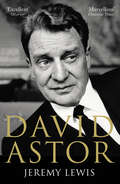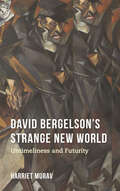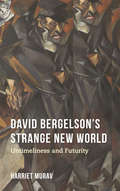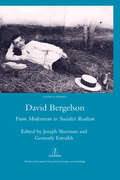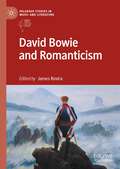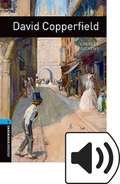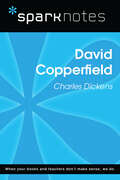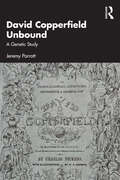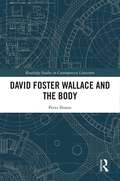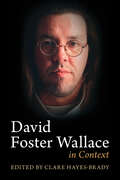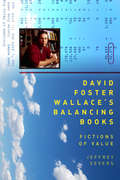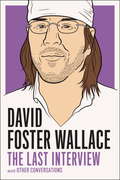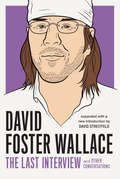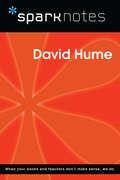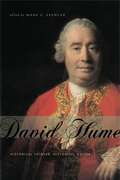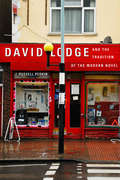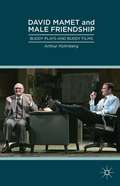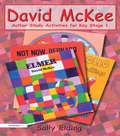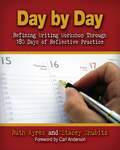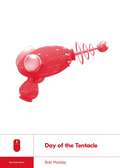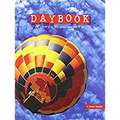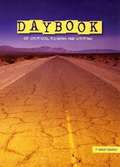- Table View
- List View
David Astor
by Jeremy LewisFew newspaper editors are remembered beyond their lifetimes, but David Astor of the Observer is a great exception to the rule. He converted a staid, Conservative-supporting Sunday paper into essential reading, admired and envied for the quality of its writers and for its trenchant but fair-minded views. Astor grew up at Cliveden, the country house on the Thames which his grandfather had bought when he turned his back on New York, the source of the family fortune. His liberal-minded father was a constant support, but his relations with his mother, Nancy, were always embattled. At Oxford he suffered the first of the bouts of depression that were to blight his life; a lost soul for much of the Thirties, he became involved in attempts to put the British Government in touch with the German opposition in the months leading up to the war. George Orwell had urged Astor to champion the decolonisation of Africa, and Nelson Mandela always acknowledged how much he owed to the Observer’s long-standing support. A generous benefactor to good causes, he helped to set up Amnesty International and Index on Censorship. A good man and a great editor, he deserves to be better remembered.
David Bergelson's Strange New World: Untimeliness and Futurity (Jews In Eastern Europe Ser.)
by Harriet MuravA contemporary evaluation of Bergelson and his works, examining Yiddish literature, Jewish culture, and modernism.David Bergelson (1884–1952) emerged as a major literary figure who wrote in Yiddish before WWI. He was one of the founders of the Kiev Kultur-Lige, and his work was at the center of the Yiddish-speaking world of the time. He was well known for creating characters who often felt the painful after-effects of the past and the clumsiness of bodies stumbling through the actions of daily life as their familiar worlds crumbled around them. In this contemporary assessment of Bergelson and his fiction, Harriet Murav focuses on untimeliness, anachronism, and warped temporality as an emotional, sensory, existential, and historical background to Bergleson’s work and world. Murav grapples with the great modern theorists of time and memory, especially Henri Bergson, Sigmund Freud, and Walter Benjamin, to present Bergelson as an integral part of the philosophical and artistic experiments, political and technological changes, and cultural context of Russian and Yiddish modernism that marked his age. As a comparative and interdisciplinary study of Yiddish literature and Jewish culture, this work adds a new, ethnic dimension to understandings of the turbulent birth of modernism.“Harriet Murav treats Bergelson with the care and sincerity that literary critics have shown other important writers. This is a masterpiece of literary scholarship that will be sure to transform not only how people read Bergelson and who chooses to read Bergelson, but how readers engage with the entire concept of modernism itself.” —David Shneer, author of Yiddish and the Creation of Soviet Jewish Culture: 1918-1930
David Bergelson's Strange New World: Untimeliness and Futurity (Jews in Eastern Europe)
by Harriet MuravDavid Bergelson (1884–1952) emerged as a major literary figure who wrote in Yiddish before WWI. He was one of the founders of the Kiev Kultur-Lige and his work was at the center of the Yiddish-speaking world of the time. He was well known for creating characters who often felt the painful after-effects of the past and the clumsiness of bodies stumbling through the actions of daily life as their familiar worlds crumbled around them. In this contemporary assessment of Bergelson and his fiction, Harriet Murav focuses on untimeliness, anachronism, and warped temporality as an emotional, sensory, existential, and historical background to Bergleson’s work and world. Murav grapples with the great modern theorists of time and memory, especially Henri Bergson, Sigmund Freud, and Walter Benjamin, to present Bergelson as an integral part of the philosophical and artistic experiments, political and technological changes, and cultural context of Russian and Yiddish modernism that marked his age. As a comparative and interdisciplinary study of Yiddish literature and Jewish culture, this work adds a new, ethnic dimension to understandings of the turbulent birth of modernism.
David Bergelson: From Modernism to Socialist Realism. Proceedings of the 6th Mendel Friedman Conference
by Joseph Sherman"Among the finest prose stylists in Yiddish literature, David Bergelson (1884-1952) was caught up in many of the twentieth century's most defining events. In 1909 he emerged as a pioneer of modernist prose, observing the slow decay of the Tsarist empire. In 1917 he welcomed the Revolution, but the bloodshed of the ensuing Civil War and the dogmatism of the Bolsheviks drove him to emigration. For more than a decade (1921-1934), he lived in Weimar Germany, travelling extensively in Europe and the United States. Shocked by the Wall Street Crash of 1929, disheartened by the decline of Yiddish culture in the West, and inspired by Soviet promises to create a Jewish republic, Bergelson became a Communist sympathiser and moved towards socialist realism. Returning to the Soviet Union after Hitler's rise to power, Bergelson flourished in a state-sponsored cultural environment in which his work was widely read both in Yiddish and in Russian translation. After Hitler's invasion of the Soviet Union in 1941, Bergelson became a prominent member of the Jewish Anti-Fascist Committee, writing extensively about the Holocaust. In the paranoia of the Cold War years, the Stalinist regime accused him of anti-Soviet activities and, after a secret military trial he was executed on 12 August 1952, his 68th birthday. For years, critics have argued that Bergelson produced his best work before the Revolution, and afterwards largely wrote Communist propaganda. David Bergelson: From Modernism to Socialist Realism challenges this view by examining Bergelson's entire oeuvre. The book argues that Bergelson continually reinvented himself as a writer, experimenting with style and narrative technique even under the most severe restrictions of Party dogma. With contributions from an international team of Bergelson experts, the volume offers a full-length biography, the first complete bibliography of Bergelson's work, translations of two of his most influential programmatic articles, and a range of essays dealing with all periods of the writer's life. With the contributions: Joseph Sherman- David Bergelson (1884-1952): A Biography Lev Bergelson- Memories of My Father: The Early Years (1918-1934) Daniela Mantovan- Language and Style in Nokh alemen (1913): Bergelson's Debt to Flaubert Kerstin Hoge- For Children and Adults Alike: Reading Bergelson's 'Children's Stories' (1914-1919) as Narratives of Identity Formation Seth L. Wolitz- Yoysef Shor (1922): Between Two Worlds Sasha Senderovich- In Search of Readership: Bergelson Among the Refugees (1928) Mikhail Krutikov- Narrating the Revolution: From 'Tsugvintn' (1922) to Mides-hadin (1929) Ellen Kellman- Uneasy Patronage: Bergelson's Years at Forverts (1922-1926) Gennady Estraikh- David Bergelson in and on America (1929-1949) Ber Boris Kotlerman- 'Why I am in Favour of Birobidzhan': Bergelson's Fateful Decision (1932) Harriet Murav- Memory and Monument in Baym Dnyepr (1932-1940) David Shneer- From Mourning to Vengeance: Bergelson's Holocaust Journalism (1941-1945) Jeffrey Veidlinger- 'Du lebst, mayn folk': Bergelson's Play Prints Ruveni in Historical Context (1944-1947) Joseph Sherman- 'Jewish Nationalism' in Bergelson's Last Book (1947) Roberta Saltzman- A Bibliography of David Bergelson's Work in Yiddish and English David Bergelson- Appendix A. Belles-lettres and the Social Order (1919) David Bergelson- Appendix B. Three Centres (Characteristics) (1926)"
David Bowie and Romanticism (Palgrave Studies in Music and Literature)
by James RoviraDavid Bowie and Romanticism evaluates Bowie’s music, film, drama, and personae alongside eighteenth- and nineteenth-century poets, novelists, and artists. These chapters expand our understanding of both the literature studied as well as Bowie’s music, exploring the boundaries of reason and imagination, and of identity, gender, and genre. This collection uses the conceptual apparata and historical insights provided by the study of Romanticism to provide insight into identity formation, drawing from Romantic theories of self to understand Bowie’s oeuvre and periods of his career. The chapters discuss key themes in Bowie’s work and analyze what Bowie has to teach us about Romantic art and literature as well.
David Copperfield
by Charles Dickens Clare WestThis award-winning collection of adapted classic literature and original stories develops reading skills.
David Copperfield (SparkNotes Literature Guide Series)
by SparkNotesDavid Copperfield (SparkNotes Literature Guide) by Charles Dickens Making the reading experience fun! Created by Harvard students for students everywhere, SparkNotes is a new breed of study guide: smarter, better, faster.Geared to what today's students need to know, SparkNotes provides:chapter-by-chapter analysis explanations of key themes, motifs, and symbols a review quiz and essay topics Lively and accessible, these guides are perfect for late-night studying and writing papers.
David Copperfield Unbound: A Genetic Study
by Jeremy ParrottDavid Copperfield was Dickens's most personal novel, a first-person narrative that reworked details of both the author's lived experience and his complex psychological profile. The present study is a highly original exploration of the sources and motivations underpinning this canonical work, treated here as a melting pot of ideas and a proto-modernist masterpiece. Jeremy Parrott casts himself as a literary detective, tracking down clues hidden in the text, following in Dickens's footsteps, and laying bare a previously unsuspected symbolic scaffolding which ranges across Greek mythology, English history, Romantic poetry, and the latest advances in science. Following the example set by Betsey Trotwood, every proper name in this enormously rich text is subjected to rigorous analysis, laying bare the deepest currents of Dickens's mind and showing him to be an even greater artist than previously imagined. From the search for an elephant in Great Yarmouth to the discovery of the mysterious reader whom Dickens loved in 1850, this engaging and readable study will radically alter what you thought you knew about the best-loved Victorian novelist and his own 'favourite child'.
David Foster Wallace and the Body (Routledge Studies in Contemporary Literature)
by Peter SloaneDavid Foster Wallace and the Body is the first full-length study to focus on Wallace’s career-long fascination with the human body and the textual representation of the body. The book provides engaging, accessible close readings that highlight the importance of the overlooked, and yet central theme of all of this major American author’s works: having a body. Wallace repeatedly made clear that good fiction is about what it means to be a ‘human being’. A large part of what that means is having a body, and being conscious of the conflicts that arise, morally and physically, as a result; a fact with which, as Wallace forcefully and convincingly argues, we all desire ‘to be reconciled’. Given the ubiquity of the themes of embodiment in Wallace’s work, this study is an important addition to an expanding field. The book also opens up the themes addressed to interrogate aspects of contemporary literature, culture, and society more generally, placing Wallace’s works in the history of literary and philosophical engagements with the brute fact of embodiment.
David Foster Wallace in Context (Literature in Context)
by Clare Hayes-BradyDavid Foster Wallace is regarded as one of the most important American writers of the twentieth and twenty-first centuries. This book introduces readers to the literary, philosophical and political contexts of Wallace's work. An accessible and useable resource, this volume conceptualizes his work within long-standing critical traditions and with a new awareness of his importance for American literary studies. It shows the range of issues and contexts that inform the work and reading of David Foster Wallace, connecting his writing to diverse ideas, periods and themes. Essays cover topics on gender, sex, violence, race, philosophy, poetry and geography, among many others, guiding new and long-standing readers in understanding the work and influence of this important writer.
David Foster Wallace's Balancing Books: Fictions of Value
by Jeffrey SeversThe writing of David Foster Wallace transformed the root and branch of contemporary fiction, introducing a formal inventiveness that moved authors away from an emotionless postmodern irony. Critics have pointed to Wallace’s exploration of morality and a return to sincerity as the central concerns of his work. However, as Jeffrey Severs argues in David Foster Wallace’s Balancing Books, the author was also deeply engaged with the social, political, and economic issues of the twentieth and twenty-first centuries. A rebellious economic thinker, Wallace not only satirized the deforming effects of money but also questioned the logic of the monetary system. In his original readings of all of Wallace’s fiction, from The Broom of the System and Infinite Jest to the story collections and The Pale King, Severs reveals Wallace to be a thoroughly political writer whose works provide an often surreal history of financial crises and neoliberal policies.As Severs demonstrates, balance and value are crucial to the work of Wallace, who constantly asks us to consider what we value and why. The concept of value is where his major interests intersected: economics, work, metaphysics, mathematics, and morality. Severs also details how Wallace’s writing explores the quest for balance in a world of excess and entropy. Wallace showed characters struggling to place two feet on the ground and restlessly sought to balance the books of a chaotic culture. Explaining why Wallace’s work has galvanized a new phase in contemporary global literature, Severs draws connections to key forerunners Don DeLillo, Thomas Pynchon, and William Gaddis, as well as successors-including Dave Eggers, Teddy Wayne, Jonathan Lethem, and Zadie Smith-interpreting Wallace’s legacy in terms of finance, the gift, and office life.
David Foster Wallace's Balancing Books: Fictions of Value
by Jeffrey SeversWhat do we value? Why do we value it? And in a neoliberal age, can morality ever displace money as the primary means of defining value? These are the questions that drove David Foster Wallace, a writer widely credited with changing the face of contemporary fiction and moving it beyond an emotionless postmodern irony. Jeffrey Severs argues in David Foster Wallace's Balancing Books that Wallace was also deeply engaged with the social, political, and economic issues of the twentieth and twenty-first centuries. A rebellious economic thinker, Wallace satirized the deforming effects of money, questioned the logic of the monetary system, and saw the world through the lens of value's many hidden and untapped meanings. In original readings of all of Wallace's fiction, from The Broom of the System and Infinite Jest to his story collections and The Pale King, Severs reveals Wallace to be a thoroughly political writer whose works provide an often surreal history of financial crises and economic policies.As Severs demonstrates, the concept of value occupied the intersection of Wallace's major interests: economics, work, metaphysics, mathematics, and morality. Severs ranges from the Great Depression and the New Deal to the realms of finance, insurance, and taxation to detail Wallace's quest for balance and grace in a world of excess and entropy. Wallace showed characters struggling to place two feet on the ground and restlessly sought to "balance the books" of a chaotic culture. Explaining why Wallace's work has galvanized a new phase in contemporary global literature, Severs draws connections to key Wallace forerunners Don DeLillo, Thomas Pynchon, and William Gaddis, as well as his successors—including Dave Eggers, Teddy Wayne, Jonathan Lethem, and Zadie Smith—interpreting Wallace's legacy in terms of finance, the gift, and office life.
David Foster Wallace: and Other Conversations (The Last Interview Series)
by David Foster WallaceIn intimate and eloquent interviews, including the last he gave before his suicide, the writer hailed by A.O. Scott of The New York Times as "the best mind of his generation" considers the state of modern America, entertainment and discipline, adulthood, literature, and his own inimitable writing style.In addition to Wallace's last interview, the volume features a conversation with Dave Eggers, a revealing Q&A with the magazine of his alma mater Amherst, his famous Salon interview with Laura Miller following the publication of Infinite Jest, and more.These conversations showcase and illuminate the traits for which Wallace remains so beloved: his incomparable humility and enormous erudition, his wit, sensitivity, and humanity. As he eloquently describes his writing process and motivations, displays his curiosity by time and again turning the tables on his interviewers, and delivers thoughtful, idiosyncratic views on literature, politics, entertainment and discipline, and the state of modern America, a fuller picture of this remarkable mind is revealed.
David Foster Wallace: and Other Conversations (The Last Interview Series)
by David Foster Wallace David StreitfeldAn expanded edition featuring new interviews and an introduction by the editor, a New York Times journalist and friend of the authorA unique selection of the best interviews given by David Foster Wallace, including the last he gave before his suicide in 2008. Complete with an introduction by Foster Wallace's friend and NY Times journalist, David Streitfeld. And including a new, never-before-published interview between Streitfeld and Wallace.
David Hume (SparkNotes Philosophy Guide)
by SparkNotesDavid Hume (SparkNotes Philosophy Guide) Making the reading experience fun! SparkNotes Philosophy Guides are one-stop guides to the great works of philosophy–masterpieces that stand at the foundations of Western thought. Inside each Philosophy Guide you&’ll find insightful overviews of great philosophical works of the Western world.
David Hume: Historical Thinker, Historical Writer
by Mark G. SpencerThis volume provides a new and nuanced appreciation of David Hume as a historian. Gone for good are the days when one can offhandedly assert, as R. G. Collingwood once did, that Hume “deserted philosophical studies in favour of historical” ones. History and philosophy are commensurate in Hume’s thought and works from the beginning to the end. Only by recognizing this can we begin to make sense of Hume’s canon as a whole and see clearly his many contributions to fields we now recognize as the distinct disciplines of history, philosophy, political science, economics, literature, religious studies, and much else besides. Casting their individual beams of light on various nooks and crannies of Hume’s historical thought and writing, the book’s contributors illuminate the whole in a way that would not be possible from the perspective of a single-authored study.Aside from the editor, the contributors are David Allan, M. A. Box, Timothy M. Costelloe, Roger L. Emerson, Jennifer Herdt, Philip Hicks, Douglas Long, Claudia M. Schmidt, Michael Silverthorne, Jeffrey M. Suderman, Mark R. M. Towsey, and F. L. van Holthoon.
David Hume: Historical Thinker, Historical Writer
by Mark G. SpencerThis volume provides a new and nuanced appreciation of David Hume as a historian. Gone for good are the days when one can offhandedly assert, as R. G. Collingwood once did, that Hume “deserted philosophical studies in favour of historical” ones. History and philosophy are commensurate in Hume’s thought and works from the beginning to the end. Only by recognizing this can we begin to make sense of Hume’s canon as a whole and see clearly his many contributions to fields we now recognize as the distinct disciplines of history, philosophy, political science, economics, literature, religious studies, and much else besides. Casting their individual beams of light on various nooks and crannies of Hume’s historical thought and writing, the book’s contributors illuminate the whole in a way that would not be possible from the perspective of a single-authored study.Aside from the editor, the contributors are David Allan, M. A. Box, Timothy M. Costelloe, Roger L. Emerson, Jennifer Herdt, Philip Hicks, Douglas Long, Claudia M. Schmidt, Michael Silverthorne, Jeffrey M. Suderman, Mark R. M. Towsey, and F. L. van Holthoon.
David Lodge and the Tradition of the Modern Novel
by J. Russell PerkinDavid Lodge is a much-loved novelist and influential literary critic. Examining his career from his earliest publications in the late 1950s to his more recent works, David Lodge and the Tradition of the Modern Novel identifies Lodge's central place within the canon of twentieth-century British literature. J. Russell Perkin argues that liberalism is the defining feature of Lodge's identity as a novelist, critic, and Roman Catholic intellectual, and demonstrates that Graham Greene, James Joyce, Kingsley Amis, Henry James, and H.G. Wells are the key influences on Lodge's fiction. Perkin also considers Lodge's relationship to contemporary British novelists, including Hilary Mantel, Julian Barnes, and Monica Ali. In a study that is both theoretically informed and accessible to the general reader, Perkin shows that Lodge's work is shaped by the dialectic of modernism and the realist tradition. Through an approach that draws on diverse theories of literary influence and history, David Lodge and the Tradition of the Modern Novel provides the most thorough treatment of the novelist's career to date.
David Lodge and the Tradition of the Modern Novel
by J. Russell PerkinDavid Lodge is a much-loved novelist and influential literary critic. Examining his career from his earliest publications in the late 1950s to his more recent works, David Lodge and the Tradition of the Modern Novel identifies Lodge's central place within the canon of twentieth-century British literature. J. Russell Perkin argues that liberalism is the defining feature of Lodge's identity as a novelist, critic, and Roman Catholic intellectual, and demonstrates that Graham Greene, James Joyce, Kingsley Amis, Henry James, and H.G. Wells are the key influences on Lodge's fiction. Perkin also considers Lodge's relationship to contemporary British novelists, including Hilary Mantel, Julian Barnes, and Monica Ali. In a study that is both theoretically informed and accessible to the general reader, Perkin shows that Lodge's work is shaped by the dialectic of modernism and the realist tradition. Through an approach that draws on diverse theories of literary influence and history, David Lodge and the Tradition of the Modern Novel provides the most thorough treatment of the novelist's career to date.
David Mamet and Male Friendship
by Arthur HolmbergUsing insights from psychology, sociology, anthropology, and the history of sexuality, Holmberg explores the ambiguity that drives male bonding. Personal interviews with Mamet and with the actors who have interpreted his major roles shed light on how and why men bond with each other and complement close analysis of Mamet's texts.
David McKee: Author Study Activities for Key Stage 1 (A Health Care for Women International Publication)
by Sally EldingThis innovative series is designed to help primary teachers plan focused sessions on the work of popular, well-loved and valued authors, both classic and contemporary. Each book contains a range of activities for use directly in the classroom, covering biographical information about the author; a review of the author's work and a summary of major themes in his/her key texts; key language features of the author; frameworks to help children analyze, evaluate and compare texts, and to develop personal opinions of authors' works; ideas for writing modeled on or developed from key texts; speaking and listening opportunities; drama and role play ideas; and references to video, CD-ROM, websites and ICT activities. Inside each book is a full-color pullout poster illustrating the work of the author, which also has a set of challenges for children on the back. David McKee is an author and illustrator, creator of Mr Benn, King Rollo, and the ever-popular patchwork elephant, Elmer. Building on children's enjoyment of the characters and their adventures, this book presents activities that focus on narrative structure, character development, settings and themes. Most importantly, the activities are designed to make learning about stories as much fun as reading them. Games and activities include: fortunately/unfortunately and chain of events - exploring cause and effect; comparing plots - using a matrix to order information; looking for clues about Elmer - building a character sketch; mapping feelings - exploring character development; time talk and Isabel's diary - understanding setting, sequence and relationships between the two; making a story map - recognizing picture and context clues; comparing the video to the written text; and text detective work using extracts.
Day by Day: Refining Writing Workshop Through 180 Days of Reflective Practice
by Stacey Shubitz Ruth AyresHave you ever wanted your own personal writing coach to help improve your teaching of writing? How about two personal writing coaches? In Day by Day, Stacey Shubitz and Ruth Ayres, creators of the popular blog Two Writing Teachers, guide you through the trials and tribulations of a whole year of writing workshop. ' Day by Day is organized around six fundamental components of writing workshoproutines, mini-lessons, choice, mentors, conferring, and assessment. Each component is broken down into ten-day sections. Each section includes a detailed discussion, a challenge that teachers can apply immediately,' and questions to help teachers assess the process to see what went right, what went wrong, and, most importantly, why.' Ruth and Stacey also provide daily encouragement, support, practical strategies, tips, advice, and everything you need to run an effective writing workshop that meets the needs of all the different writers in your classroom.
Day of the Tentacle (Boss Fight Books)
by Bob MackeySix years after helping the Edison family defeat the designs of a malevolent meteor in Maniac Mansion, college student and classic nerd Bernard Bernoulli once again finds himself at the front door of the infamous mansion. With two weird friends, Hoagie and Laverne, Bernard must stop the evil Purple Tentacle from conquering the world—by freezing hamsters, pushing old ladies down the stairs, abusing Swiss bank accounts, and ever so slightly changing some of the most significant moments in American history. Dave Grossman and Tim Schafer&’s 1993 time-trotting point-and-click adventure game Day of the Tentacle brought LucasArts' game design to a new standard of excellence with smart puzzles, hilarious characters, and an animation style that harkened back to classic Warner Bros. cartoons. And somehow, they fit it all on a fat stack of floppy disks! In this definitive oral history as told by the game&’s designers, musicians, and artists, writer Bob Mackey tells the inside story of Day of the Tentacle&’s lightning-in-a-bottle production, and reveals how two first-time directors boiled down the lessons of past adventure games into a tight and satisfying experience, how their team grappled with evolving technology to achieve the coveted status of multimedia at the dawn of the CD-ROM age, and how a remastered edition brought Tentacle to a new generation of fans.
Daybook of Critical Reading and Writing (Grade #5)
by Laura Robb Michael F. Opitz Ellin Oliver KeeneA literature and language arts book that aims at harnessing the students' critiical reading and writing skills
Daybook of Critical Reading and Writing (Grade #6)
by Fran Claggett Louann Reid Ruth VinzThroughout this Daybook, you will read, respond to, and write about many different kinds of texts. You will read and write for a variety of purposes.
